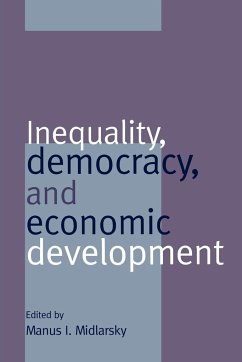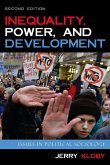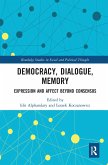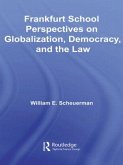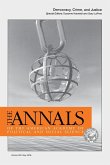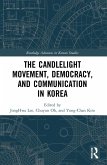Why is the relationship between inequality and democracy so compelling to the contemporary social scientist? This volume addresses questions that were raised as early as the time of Aristotle and through Marx to the present. Theoretical lacunae are explored, as are major current policy concerns. The book focuses on the sources of democracy, the relationship between economic development and thresholds of democracy, and finally on responses to democratization. Of course, definitions of democracy have varied over an extraordinarily wide range, as have conceptions of inequality, and the reader will find such variations reflected in the contributions to this volume. Descriptions of democracy vary from an emphasis on equality of participation for all citizens in decision making, to more complex indices emphasizing competitiveness and civil liberties. The contributors to this volume provide the kind of multidimensional analysis which is essential to a comprehensive treatment of the relationship between inequality, democracy, and economic development.
Table of contents:
Introduction Manus I. Midlarsky; Part I. The Early Bases of Democracy: 1. Democracy before Athens Kenneth A. Bollen and Pamela M. Paxton; 2. Environmental influences on democracy: aridity, warfare and land inequality Manus I. Midlarsky; 3. Democracy and proto-modernity: technoecological influences on the growth of political and civil rights Edward Crenshaw; 4. Inequality and democracy in the anthropolitical record Melvin Ember, Carol R. Ember and Bruce Russett; Part II. Economic Development and Thresholds of Democracy: 5. Economic determinants of democracy Edward N. Muller; 6. Informational inequality and democracy in the New World Order Miles Simpson; 7. Modernization and thresholds of democracy: evidence for a common path and process Michael Coppedge; 8. Markets and inequality in the transition from state socialism Victor Nee and Raymond V. Liedka; Part III. Responses to Democratization: 9. Democracy and inequality: tracking welfare spending in Singapore, Taiwan, and South Korea Steve Chan; 10. Political regimes and industrial wages: a cross-national analysis Mark Gasiorowski; 11. Social responses to neoliberal reforms in Eastern Europe in the 1990s Béla Greskovits; 12. Market, state, and citizenship in new democracies Giuseppe DiPalma; 13. Conclusion: paradoxes of democracy Manus I. Midlarsky.
The relationship between inequality and democracy is a compelling one for the contemporary social scientist. The contributors to this volume examine the relationship between inequality and democracy looking at questions raised as early as Aristotle through to Marx and the present day.
The contributors to this volume examine the relationship between inequality and democracy looking at questions raised as early as Aristotle through to Marx and the present day.
Hinweis: Dieser Artikel kann nur an eine deutsche Lieferadresse ausgeliefert werden.
Table of contents:
Introduction Manus I. Midlarsky; Part I. The Early Bases of Democracy: 1. Democracy before Athens Kenneth A. Bollen and Pamela M. Paxton; 2. Environmental influences on democracy: aridity, warfare and land inequality Manus I. Midlarsky; 3. Democracy and proto-modernity: technoecological influences on the growth of political and civil rights Edward Crenshaw; 4. Inequality and democracy in the anthropolitical record Melvin Ember, Carol R. Ember and Bruce Russett; Part II. Economic Development and Thresholds of Democracy: 5. Economic determinants of democracy Edward N. Muller; 6. Informational inequality and democracy in the New World Order Miles Simpson; 7. Modernization and thresholds of democracy: evidence for a common path and process Michael Coppedge; 8. Markets and inequality in the transition from state socialism Victor Nee and Raymond V. Liedka; Part III. Responses to Democratization: 9. Democracy and inequality: tracking welfare spending in Singapore, Taiwan, and South Korea Steve Chan; 10. Political regimes and industrial wages: a cross-national analysis Mark Gasiorowski; 11. Social responses to neoliberal reforms in Eastern Europe in the 1990s Béla Greskovits; 12. Market, state, and citizenship in new democracies Giuseppe DiPalma; 13. Conclusion: paradoxes of democracy Manus I. Midlarsky.
The relationship between inequality and democracy is a compelling one for the contemporary social scientist. The contributors to this volume examine the relationship between inequality and democracy looking at questions raised as early as Aristotle through to Marx and the present day.
The contributors to this volume examine the relationship between inequality and democracy looking at questions raised as early as Aristotle through to Marx and the present day.
Hinweis: Dieser Artikel kann nur an eine deutsche Lieferadresse ausgeliefert werden.

